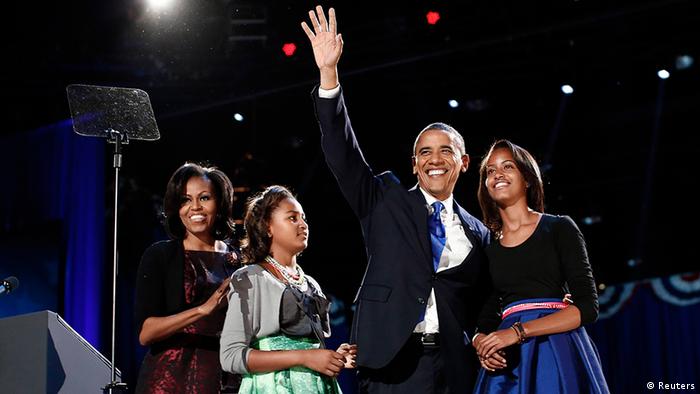Because of his African roots, Africans had high expectations of Obama when he first entered the White House in 2008. This time round they are more pragmatic.
DW: President Obama has been re-elected for a second term. Africans were generally disappointed with his first term. Should they expect him to do more for them during the next four years?
Professor Calestous Juma: I don't think that Africans should expect him to be assisting them. I think the last four years have also shown that African economies are able to hold out on their own. They have been growing when the rest of the world has been declining and I think this is an opportunity for Africa to engage with the United States through trade and not through the traditional foreign assistance.
But at the moment China is doing more trade with Africa than the United States. Can you see the US doing more to boost trade with Africa during Obama's second term?
Yes I think I would expect more engagement of the United States with Africa on trade. First in terms of expansion of natural resources because the structure of the economy is actually quiet similar between the US and Africa and China and Africa. So I would expect more to be done. And secondly I think Obama will be focusing more on expanding manufacturing in the US and that should serve also as a role model for African countries to invest more in manufacturing.
What sort of support will be forthcoming in efforts to remove militant Islamists from northern Mali?
That is one area that I think there will be a lot more collaboration between Africa and the US which is dealing with the security issues broadly. Removing Islamic militants is one of them and the second one will be more expansion of naval cooperation because Africa is strong on land and weak at sea. So in the area of security I expect more cooperation and I also think there will be more cooperation in the area of climate change.
How close an interest will the new Obama administration be taking in the elections in Zimbabwe and Kenya?
I think the Obama administration will continue to push for the democratization of the continent. That is a standing agenda because of the values of the US, and I think more Africans will like to see themselves become more democratic, there will be close collaboration between Africa and the US on democracy as well.
What about anti AIDS initiatives, food security and economic development programs in Africa. Can you see the United States refocusing on these issues?
Already the US position on agriculture has been to help Africa move towards being able to feed itself. And I think that will continue. Secondly the area of collaboration on health, that's an essential part of the United States policy. The recognition that global health is also essential for the United States, that area will continue to enjoy support as well.
During his first term, Obama made just one very short trip to Africa, a 20 hour visit to Ghana in 2009. Is a longer visit on the cards during his second term?
I will never pretend to know anything about the diary of the president of the United States, but I think foreign policy is not defined by trips. It is defined by a lot more engagement on the diplomatic level and trips are just a small part of it.
Calestous Juma is Professor of the Practice of International Development and Director of the Science, Technology and Globalization Project at Harvard University's Kennedy School of Government in the United States.
Interview: Mark Caldwell dw de


No comments:
Post a Comment